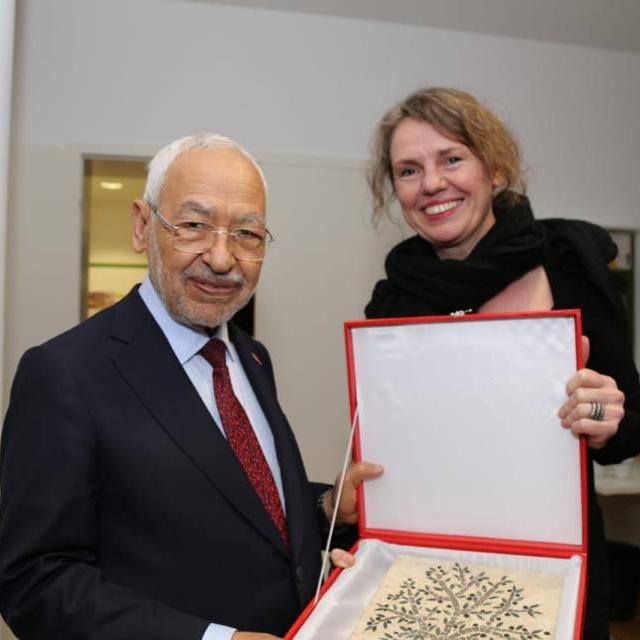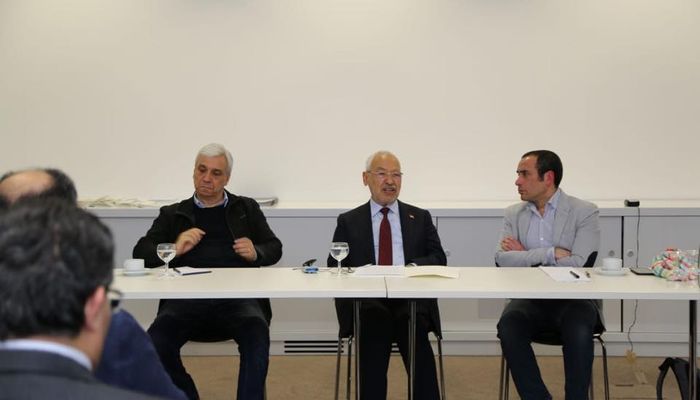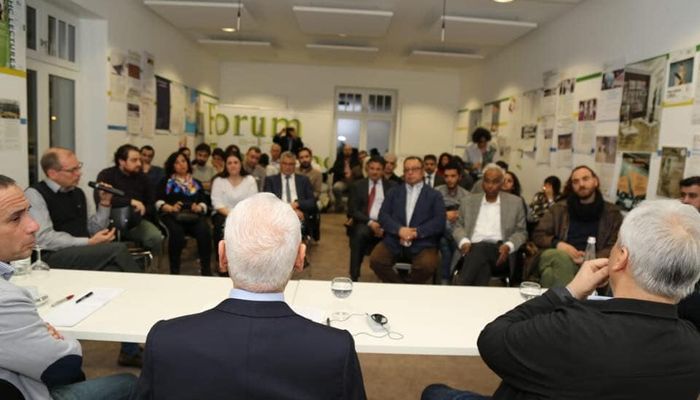In this conversation the Tunisian politician and thinker Rasheed Ghanoushi negotiates, together with his interlocutors Amr Hamzawy (Stanford University / Fellow at the Wissenschaftskolleg zu Berlin) and Yassin Al Hajj Saleh (Fellow at the Wissenschaftskolleg zu Berlin), the question of a consensus between islamic and liberal/secular thought and politics.
The conversation took place in Arabic and was initiated by the Ibn Rushd Foundation.




